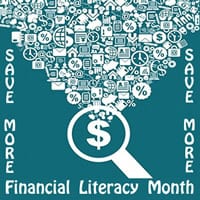People always ask me why I have two checking accounts with different banks. This weekend was the best example of why I do this.
Yesterday while I was driving home, I received a text message. It was from my bank saying that my Uber Eats purchase was approved. I didn’t order from Uber Eats. So, was this a spam text message or was this legit? Once home, I signed into my account and found out it was legit. Ugh!
Now on a Sunday afternoon of a holiday weekend, I am on the phone with the fraud department shutting down my debit card and disputing the charges. The debit card was still in my possession, so it wasn’t lost or stolen, but it was compromised. I always tap when using my card, so as not to deal with skimmers.
Now I wait. No debit card until the new one arrives. The money in my account is not available currently while the disputes being are researched. If I only had one checking account, I would be in trouble with minimal access to my money. All will be ok soon.
This isn’t the first time this has happened and I am sure this won’t be the last. In the meantime, I have my second checking account to use. That is why I keep two checking accounts with two different banks.
 Now that you are not paying fees on your bank account, are you earning interest on your money? There are some amazing accounts (both checking and savings) with great interest rates. Shop around for the best rate without fees. #JillRussoFoster #FinancialLiteracyMonth
Now that you are not paying fees on your bank account, are you earning interest on your money? There are some amazing accounts (both checking and savings) with great interest rates. Shop around for the best rate without fees. #JillRussoFoster #FinancialLiteracyMonth Are you paying fees to your bank? You should be able to bank without fees. Some banks waive the fees with a minimum balance or direct deposit. Paying a monthly fee to have a bank account is a waste of your hard-earned money. #JillRussoFoster #FinancialLiteracyMonth
Are you paying fees to your bank? You should be able to bank without fees. Some banks waive the fees with a minimum balance or direct deposit. Paying a monthly fee to have a bank account is a waste of your hard-earned money. #JillRussoFoster #FinancialLiteracyMonth Weddings are an emotional celebration. We love the idea of a bride and groom starting a new life together. We use words like “two becoming one” or “sharing your lives as one,” meaning that everything will be shared as though the couple are no longer individuals. I believe this puts a lot of unnecessary sentimental pressure on a couple to share all their finances even though it’s not always necessary, or even wise, to do so for every single account or property.
Weddings are an emotional celebration. We love the idea of a bride and groom starting a new life together. We use words like “two becoming one” or “sharing your lives as one,” meaning that everything will be shared as though the couple are no longer individuals. I believe this puts a lot of unnecessary sentimental pressure on a couple to share all their finances even though it’s not always necessary, or even wise, to do so for every single account or property.




